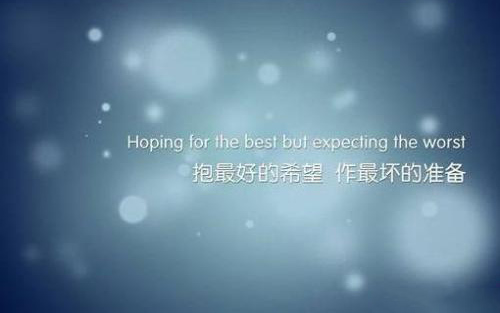时态是表示不同时间发生的动作或存在的状态,需要用不同的动词形式表示。时态题是英语考试的必考题。下面是小编收集整理的中考英语时态练习题,大家一起来看看吧!
中考英语时态练习题:
1. The sun ________ in the east.
A. is always rising B. always is rising C. rises always D. always rises
2. He often ________ his clothes on Sundays.
A. washing B. washes C. has washed D. wash
3. I’m Japanese. Where ________ from?
A. do you come B. you are coming C. you come D. are you coming
4. A mother who ________ her son will do everything for his happiness.
A. is loving B. loves C. loved D. has loved
5. ________ at a higher temperature than water?
A. Has milk boiled B. Is milk boiling C. Does milk boil D. Was milk boiling

6. He signed to us with his hand, “The lesson is over. You ________.”
A. dismissed B. are dismissed C. have dismissed D. were dismissed
7. I haven’t met him for ages, but his mother ________ him sometimes.
A. had still seen B. still sees C. has still seen D. still saw
8. We will start as soon as our team leader________ .
A. comes B. will come C. come D. is coming
9. I think Jack ________ the answer.
A. has known B. does know C. is knowing D. knows
10. My father ________ George quite well; they were introduced at a party.
A. is knowing B. was knowing C. knows D. had been knowing
答案:1. D 2. B 3. A 4. B 5. C 6. B 7. B 8. A 9. D 10. C
过去完成时用法详说:
1. 过去完成时的基本用法
过去完成时与现在完成时相似,也有“已完成”和“未完成”两种用法,所不同的是,过去完成时将时间推移到过去某一时间之前,即所谓的“过去的过去”。具体地说,它既可表示在过去某一时间之前已完成的动作,也可表示从一个较早的过去持续一个较迟的过去的动作:
He had left when I arrived. 当我到达时他已经离开。
By six o’clock he had worked twelve hours. 到6点钟时他就已工作了12小时。

2. 如何正确运用过去完成时
正确运用过去完成时最重要的是要正确理解“过去的过去”。“过去的过去”是一个相对时间,即它相对于一个过去时间而言,并在其过去。这种相对的“过去的过去”有时通过一定的时间副词(状语)体现出来,有时则可能是通过一定的上下文来体现:
I found the watch which I had lost. 我找到了我丢失的表。
The house was quiet. Everybody had gone to bed. 屋子里很安静,大家都睡觉了。
"Was Jack at the office?" "No, he’d gone home." “杰克在办公室吗?”“不在,回家了。”
【注】有些通常与现在完成时连用的词语,由于在一定的语境中,谓语动作移到了“过去的过去”,也应用过去完成时。比较:
We haven’t seen each other since we left Paris. 自从离开巴黎后我们一直没见过面。
I saw Mr Smith last Sunday. We hadn’t seen each other since we left Paris. 上周星期天我见到史密斯先生了,自从离开巴黎后我们还一直没见过面。
将来进行时表示委婉语气:
Will you be having some tea? 喝点茶吧。
Will you be needing anything else? 你还需要什么吗?
试比较:
When will you finish these letters? 你什么时候会处理完这些信件? (如上司对下属)
When will you be seeing Mr White? 你什么时候会见到怀特先生? (如下属对上司)
有时这两种结构在意义上确实不同,例如:
Mary won’t pay this bill. 玛丽不付账。(她拒绝付账)
Mary won’t be paying this bill. 玛丽不会付账。(将来)
Will you join us for dinner? 你来和我们一起吃饭好吗? (邀请)
Will you bejoining us for dinner? 你会和我们一起吃饭吗? (将来)
Won’t you come with us? 你和我们一起去好吗? (邀请)
Won’t you be coming with us? 你会和我们一起去吗? (将来)
现在完成时、过去完成时与将来完成的区别:
1. 现在完成时以现在时间为参照点,表示在“现在”以前完成的动作或持续到“现在”的状态;
2. 过去完成时则以过去时间为参照点,表示在“过去”某一时间以前发生的动作或持续到“过去”某一时间的状态;
3. 将来完成时则以将来时间为参照点,表示在“将来”某一时间为止已经完成的动作或持续到“将来”某一时间的状态。
请看例句:
He has finished writing his novel. 他已写完了他的小说。
He had finished writing his novel by the end of last year. 去年年底他就写完他的小说。
He will have finished writing his novel by the end of next year. 到明年年底他就会写完他的小说了。
与一般现在时代替一般将来时一样,在表示时间或者条件的状语从句,通常要用现在完成时来表示将来完成时,而不能直接使用将来完成时:
I will go with you when I have finished my work. 等我完成工作之后我就同你去。
若不强调动作的完成(且不至于引起歧义),有时也可用一般现在时:
I will go with you when I finish my work. 我完成工作后就同你去。
与“中考英语时态练习题”相关文章
赞(0)
12
12
分享:

